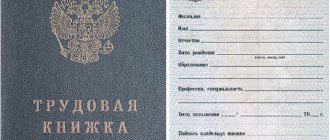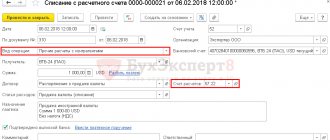Grounds for changing the head of a peasant farm
Cases in which it is possible to change the head of a farm are established by clause 1 of Art. 18 74-FZ. There are three grounds on which it is possible to formalize this fact:
- The head of a peasant farm cannot perform his direct duties for more than 6 months.
- Refusal of the head of the farm from his powers.
- Death of the head of a peasant farm.
Other cases are not grounds for re-election of the head of a peasant farm. However, as judicial practice shows, the head of a farm can be replaced in the event of proven violations that have caused damage to the farm as a whole or to its individual members.
To simplify this procedure, when drawing up an agreement between members of a peasant farm, it is necessary to reflect the conditions for a change of power. Moreover, the loss of the powers of the head does not deprive him of the right to membership in the farm.
In what cases is it possible to change the head of a peasant farm in 2019?
According to the provisions of Art. 18 of the Federal Law “On Peasant Farms”, the reason for changing the head of a farm in 2022 may be:
- Death of the former head of the peasant (farm) enterprise;
- Inability of the head of the farm to perform his duties for more than 6 months;
- Voluntary renunciation of the head of a peasant farm from his powers.
Note! In the last two cases, the change of the head of the peasant farm does not entail the termination of his membership in the farm.
Collection of documents
When registering a change of head of a peasant farm, the tax office at the place of registration must submit the following package:
- Application in the established form P24002.
- A copy of the identity document of the new head of the peasant farm.
- An agreement made by members of a household to change the head.
Please note the date of registration of the farm.
If it was created after the publication of the law on peasant farms, then the Federal Tax Service already has an agreement that contains information about the previous chapter, so it needs to be re-signed or an additional agreement drawn up. The former head must fill out the application, therefore, he also signs the document. This form must be certified by a notary office (Clause 1, Article 9 of Law No. 129-FZ). If the head of a peasant farm is incapacitated, the document is drawn up by his official guardian. If the reason for the change is the death of the head of the peasant farm, a copy of the certificate is attached to the package of documents to the tax office.
Federal Tax Service employees are required to make a decision and prepare the relevant documents within 5 working days.
How to change the head of a peasant farm: preparation and submission of documents
When the issue of changing the head of the farm has been resolved and all members of the structure have decided on a new candidate, only a formal process remains. Its order is also strictly defined by law.
According to the established rules, the following package of documents is submitted to the territorial office of the tax inspectorate:
an application filled out in a specific form. This form is standard, a sample can be obtained from the tax office where the application is submitted, or on the official website of this structure;- an agreement on the change of manager, which is concluded by the members of the enterprise. This document must be signed by all members of the peasant farm, but if the need to change the head is caused by such objective reasons as an undue health condition or the death of this official, the consent of all participants will not be required. The same applies to cases where the basis for the removal of one person from the post of head with the subsequent appointment of another is due to the relevant court decision;
- a copy of the document - the identity card of the newly elected head of the farm.
Additional documents may be necessary if the farm was founded after the publication of the law on peasant farms. This means that the tax service has information about the former head of the enterprise, which means that the corresponding certificate should be updated. For this purpose, you can either conclude an additional agreement or conclude it first.
Since the main application is filled out on his own behalf by the former head of the household, signing it will also be one of his responsibilities. When submitting documents, you should be guided by the provisions of Article 9 of the law regarding state registration of legal entities and individual entrepreneurs (https://www.consultant.ru/document/cons_doc_LAW_32881/7d3bbe87d0949e0bfa295a2ace7b73372fbd1098/). Only in the event of the head's incapacity, officially confirmed, is this responsibility assigned to his guardians by law. Another case when the direct participation of the previous head is not required is a change of head due to his death. To confirm this fact, along with the main package of documents, a copy of the death certificate should be provided to the specialized authority.
After the application is accepted by tax officials, the process of reviewing it will begin. After a period of 5 working days, specialists of the Federal Tax Service provide an answer to the applicant and issue documents prepared accordingly.
If the owner is alone
If a peasant farm is registered in the name of one person, then it is impossible to register a change of head, and if the individual entrepreneur status is lost, the farm is liquidated. This can be avoided if a new member is accepted into the peasant farm in advance and an agreement is drawn up. After registration, you can begin the procedure for changing the head of the household. The previous owner can remain a member of the peasant farm or submit an application and leave its membership.
Documents for changing the head of a peasant farm can be submitted to the tax authorities either in person or by mail. But if you decide to send the forms by mail, then they must all be certified by a notary office.
In conclusion, we note that a change in the head of the economy does not entail a change in the taxation regime. After all, the changes made do not lead to a change in the OGRNIP, therefore, your enterprise does not lose the right to use the unified agricultural tax.
Head of a peasant farm: his powers and rules of change
Peasant farming is a special form of entrepreneurial activity, specializing primarily in agricultural sectors.
The status and format of a peasant farm is unique in itself: in fact, in its organizational features and reporting methods, it is more similar to legal entities, but with regard to financial responsibility, such a structure has more in common with individual entrepreneurship.
On video: Registration of a peasant farm: necessary or not
The peculiarities of the status of the head of a peasant farm as a business entity is that he takes part in the work of the organization not on his own behalf, but representing the interests of the entire farm. This fact determines the level of his responsibility and powers. Thanks to this feature, in fact, within the same organization, two separate business entities operate in the face of the law - the farm itself and its head. The rights and responsibilities of the head of a peasant farm are in many ways similar to the powers vested in persons registered as individual entrepreneurs. But there are some significant differences in their status as subjects of entrepreneurship and taxation. These include the special, special legal capacity of the head of a peasant farm. This means that this person, even if he has the status of an individual entrepreneur, has the right to engage only in those types of activities that are defined by special regulations. Specific areas of activity for a peasant farm, and therefore its manager, must be recorded in the form of specific OKVED codes according to the current classifier. To change their specialization, these individuals must go through the registration procedure from the beginning.
In general, according to Federal Law No. 74 “On Peasant (Farm) Farms,” the duties and powers of the head of such an organization are defined quite clearly.
The main ones are the following:
- complete organization of farm work;
- representing the interests of peasant farms, signing transactions on its behalf and other similar actions;
- issuing powers of attorney to members of peasant farms or third-party citizens to represent the interests of the organization without the participation of the head himself;
- hiring employees, monitoring their work and dismissing employees;
- organization of enterprise accounting, submission of regular reports to the tax authority;
- registration and signing of any agreements between members of the enterprise.
These basic powers in each specific case can be modified or supplemented with other responsibilities, which is certainly reflected in the charter or agreement that all participants of the enterprise conclude among themselves.
Thus, the head as a whole is involved in organizing the company’s activities and is responsible for its control . In fact, taking into account the current regulations, we can conclude that the peasant farm is not so much a complex organization as a voluntary association of citizens, the rights and features of participation of which are determined by laws and agreements between all members of the team. This agreement serves as a charter and largely determines the specifics of the activities of the entire organization.
Federal Law No. 74, which regulates the foundation and activities of peasant farms (“On Peasant Farms”), defines the position of the head of such an enterprise, outlining all the powers, rights and obligations of the person holding this post. The same regulatory act, Article 18 (https://www.consultant.ru/document/cons_doc_LAW_42662/41fd2e933830a46b9bc5116069535394332c66b3/), sets out all possible reasons for changing the head of a farm and the procedural features of such a process.
As the specialized law defines, there are several main reasons for changing the head of a peasant farm:
the current head of the enterprise is not able to fulfill his assumed duties for a period exceeding six months;- voluntary renunciation of the manager's own powers. This option provides for a mandatory voluntary agreement of all company participants - the head himself and all members of the peasant farm;
- death of the head of the enterprise.
Only the listed prerequisites can be the main reasons why a change in the head of a peasant farm is possible. True, if other members of the organization can prove in court that there was material damage to the farm or its individual members as a result of making incorrect management decisions.
To make this process simpler, at the stage of establishing a peasant farm, you can add this clause to the agreement between all members of the organization being created. This document can spell out all the potential conditions on the basis of which a legal change of head is possible. The process of drawing up such an agreement and the specifics of introducing the necessary conditions into its text will be determined by Article 4 of the Federal Law regarding peasant farms (https://www.consultant.ru/document/cons_doc_LAW_42662/9cacbb714639f058351ca7fe2012571b893ab721/#dst100026). In particular, changes to the provisions of the charter require the consent of each member, which must be supported by personal signatures.
Additional features of changing the head of a peasant farm
Speaking about the legal grounds and procedure for changing the head of a farm, you should be aware of some special cases. One of these is the absence of other members in the structure of the enterprise other than the manager himself. If the farm is registered under the name of one citizen, registered with the tax service as an individual entrepreneur, the usual change of head is not provided for. According to regulatory rules, an organization with the status of an individual entrepreneur cannot simply change its founder - if the head is unable to fulfill his obligations, the structure must be cancelled. To avoid such a development of events, an individual entrepreneur can first take another person into the farm as a member of the company and sign an appropriate agreement with him. After the new member acquires official status, the traditional procedure for changing the head can be carried out, but the previous leader can either remain in the household in the status of an ordinary member or leave this composition.
As for the method of submitting documents to change the head of a peasant farm, they can be submitted to the tax service in person or sent by mail. In the second case, all submitted documents must be certified by a notary.
If only a temporary change of head of the farm is planned, for example, if the head of the company is temporarily unable to perform his duties, he can transfer his powers on the basis of a power of attorney. To draw it up and sign it, they turn to a notary, who legally certifies this process.
Changing the head of a farm does not provide for the need to change the formal status of the company and the taxation regime. Including if a farm pays a single agricultural tax, the appearance of a new manager at the head of the enterprise will in no way change this status.
Taking into account the objective circumstances accompanying the activities of farms, we can conclude that even such an important position for the organization as the head of a peasant farm may undergo personnel changes. In some cases, the head of a peasant farm may be replaced by another person, for which all participants must first go through certain procedures for agreeing and confirming the changes made. It is important to know that the actual change of management of a farm without timely documentary confirmation and approval from the tax authority is fraught with more or less serious punishment in accordance with the law.







